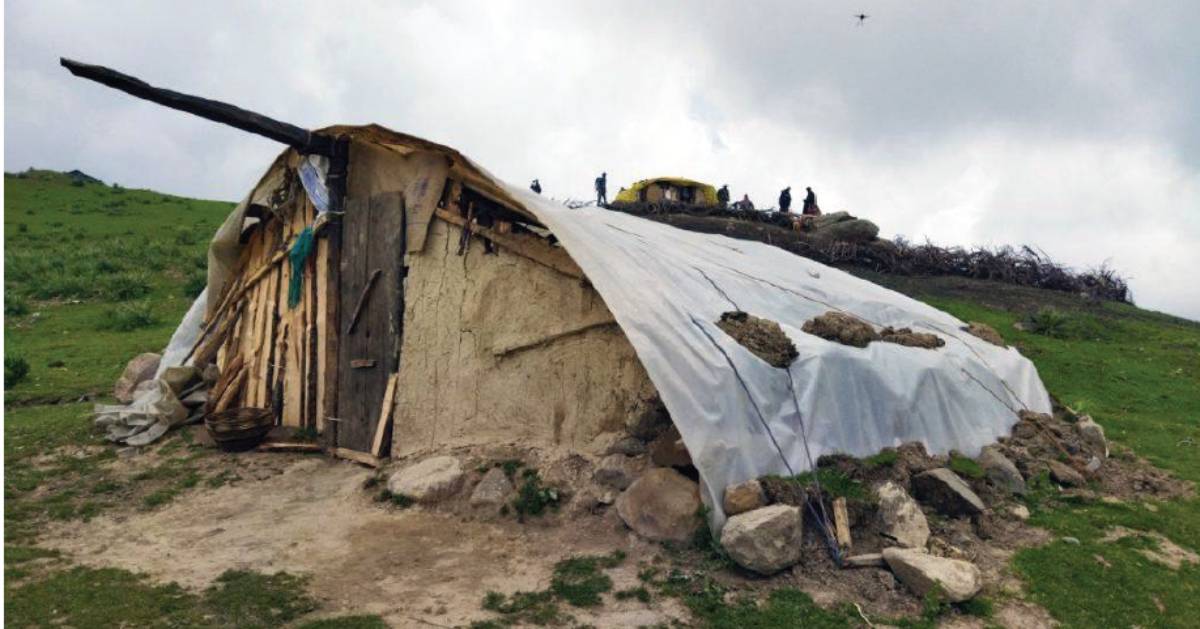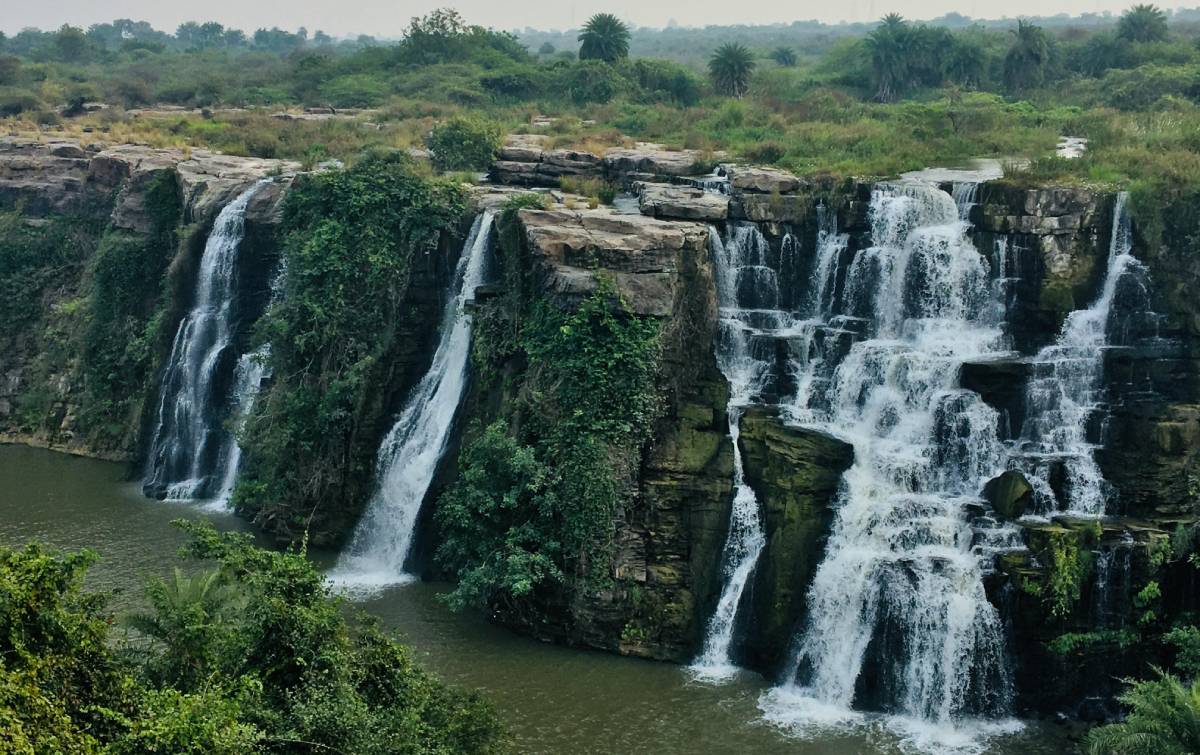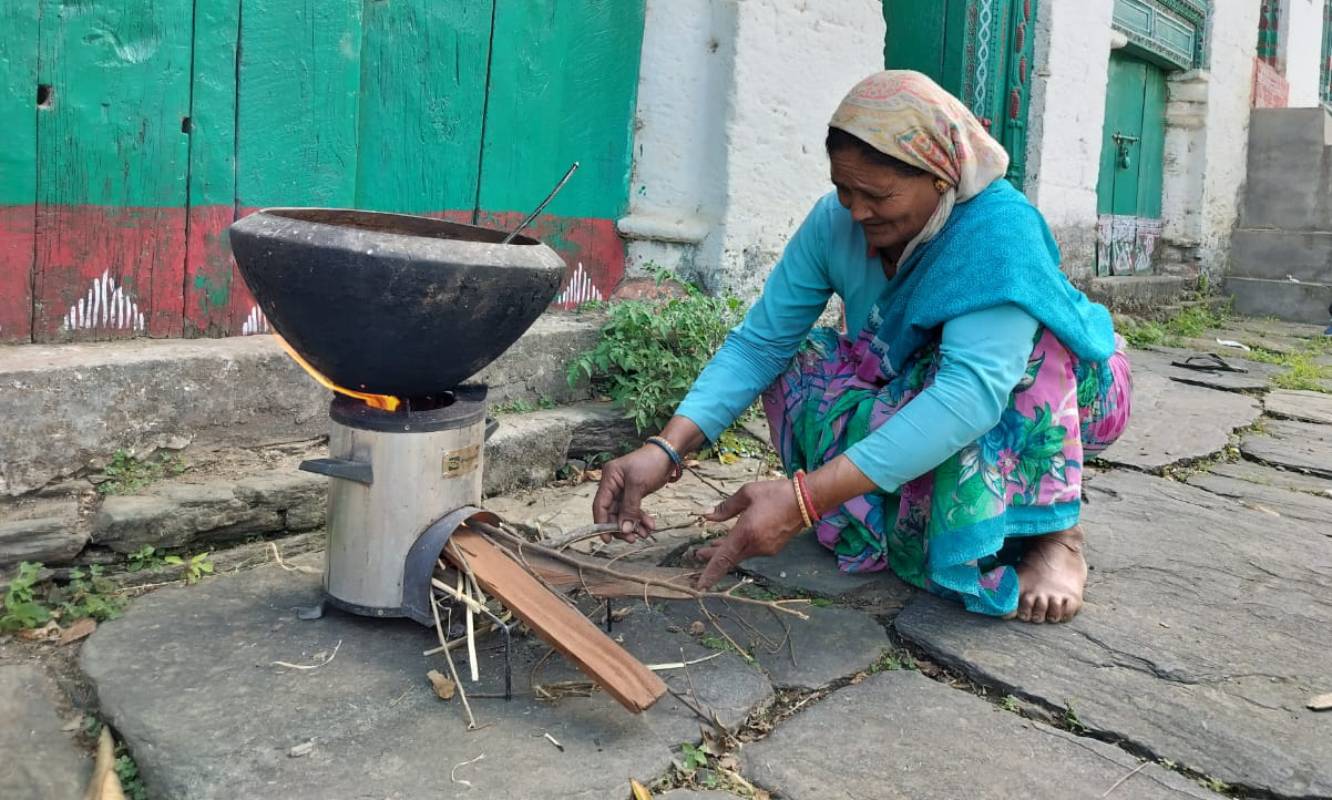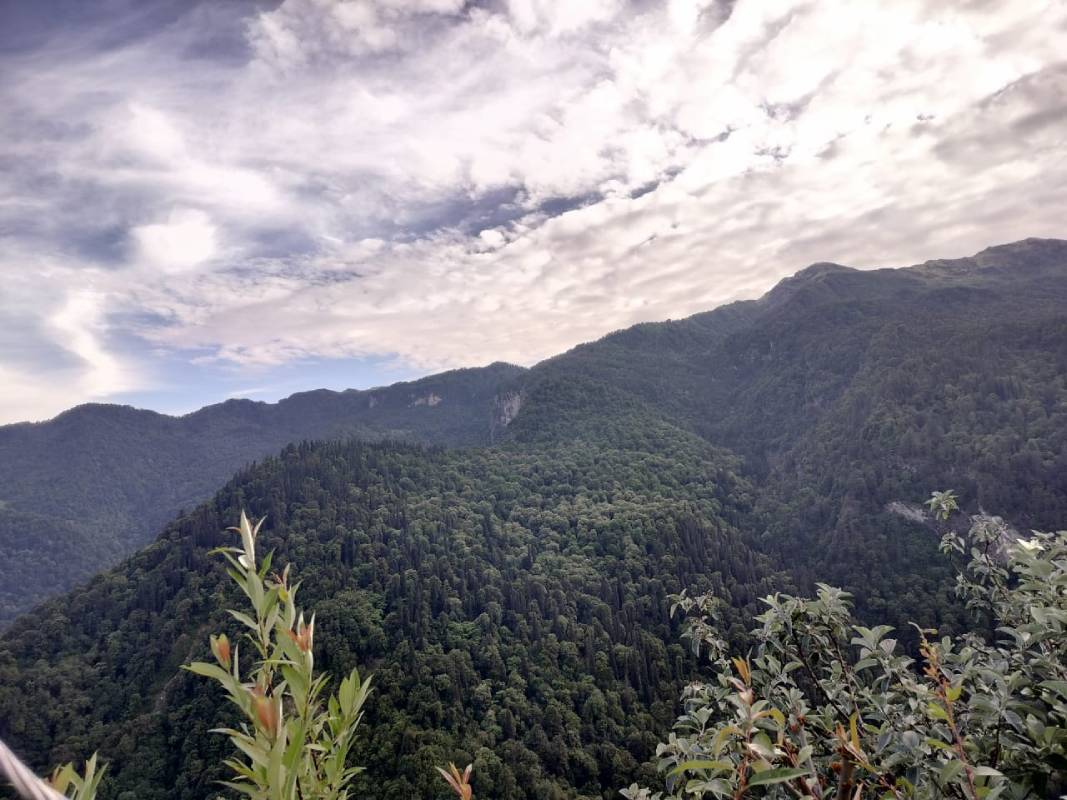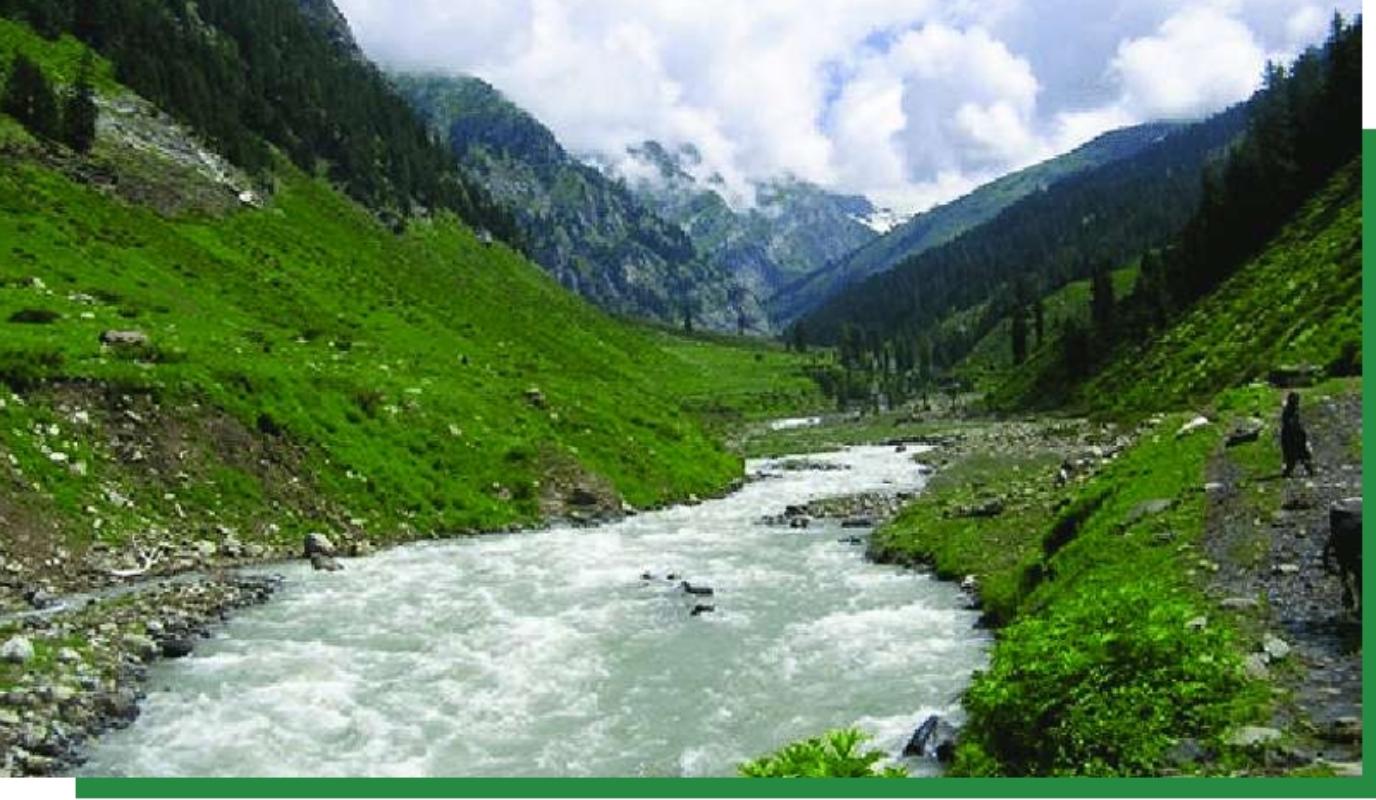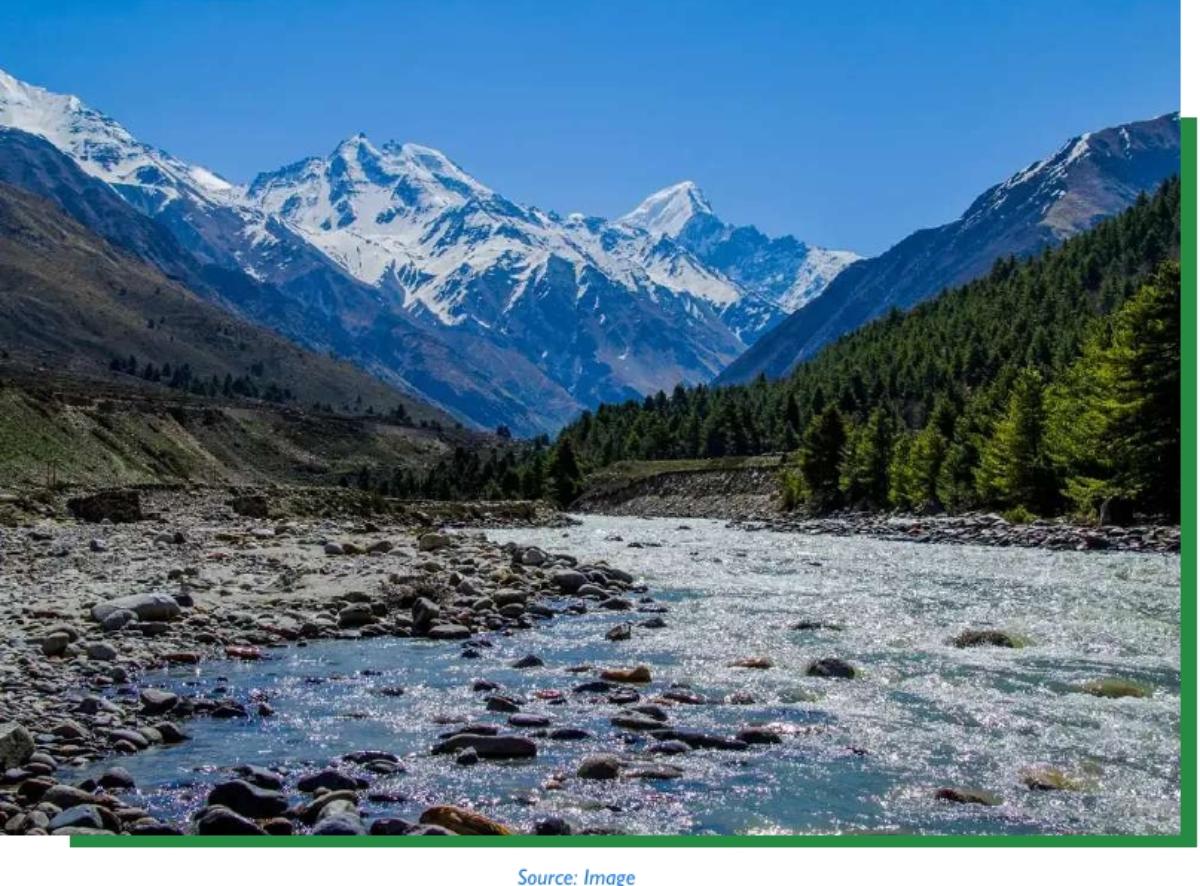Case Study 1- Chopans
The pastoralist communities of Kashmir like the Chopans, Gujjars and Bakerwals, whose houses got damaged by winter snowfall and other reasons in the recent past, are awaiting clearance from the forest department to rebuild them.
Our team headed by Dr Raja Muzaffar met several affected families from July to September this year in the pasturelands of PirPanjal forests which included Gujjars and Chopans. Many families whose Kothas have been damaged were living miserably in highland pastures like Corag ,Diskhal , Ayad, Liddermud and Palmaidan.
In the absence of their kothas (houses made of log and mud), the affected nomadic groups sleep in tarpaulin tents in extreme weather conditions. They get damaged due to fast winds in the area.
After the implementation of the Forest Rights Act, 2006 last year in Jammu &Kashmir , I was certain that government would issue a circular to the forest department to allow pastoralists to repair their damaged huts. But that is yet to happen.
The team visited Dikshal and Corag meadowin July this year after a three-hour hike from Doodhpathri. On our way to the basecamp at Corag, I met some shepherd women and their little children collecting wild, leafy vegetables at the meadow. I spoke to one of the elderly woman namely Azee Begum aged around 70 years. She asked our team to take a look at her tarpaulin shelter. The old lady seemed depressed and distressed.
We saw a white tarpaulin sheet spread over some rocks from a distance. Azeeand her family of 4 persons use this as their shelter at this high altitude meadow.
Dikshaland Corag meadows are located at an altitude of 3,500 metres and witnesses very fast winds almost every day from June and August especially during moonsoons. We couldn’t believe Azee and her family dwell under just a tarpaulin sheet in the harsh weather conditions ?
In mid of June 2021 the fast winds destroyed hundreds of trees in the nearby forests of Doodhpathri and Doodh Ganga valley. Diskhal is a green pasture with no forest cover at all and the winds are faster and stronger in the area.
The tarpaulin shelters of Chopans get damaged almost every day. The situation is horrible and every night is like a nightmare for these poor shepherds.
The shepherd women have to trek two kilometres (km) downhill every time they have to gather firewood.
Until 10 years back Azee and many other Chopan families owned kothas in the meadow. Around a dozen of these log huts were burnt down around autumn 2015 when the families were away. It is still unclear who was behind the arson.
The nomadic families had antagonised the local timber smugglers by alerting forest officials of the latter’s illegal activities. They may have destroyed the kothas, sources told me.
The Chopans never indulge in timber smuggling and work hard to earn their livelihoods. They have been targeted several times for conserving the forests.And yet, the forest department hasn’t even recognised their contribution or allowed them to reconstruct their kothas in the last five years.
Malpractices and delays
Gul Jan, a resident of Gohi Dragan village in KaichKhansahib and member of the Gujjar community, comes to MechiKhanainJabb every summer with a flock of cattle. MechiKhanainJabb is also a highland pasture located around Diskhal.
Gul Jaan’s husband, who would accompany her to the meadow, succumbed to an illness in 2017. But she didn’t give up her livelihood.
She continues to come to the pastureland with their cattle for three months, assisted by her four children. After August, the cattle are taken back to their village for another three months.
The condition of her kotha made of wooden logs, stones and mud is terrible. She has been requesting the forest department to allow her to collect some old wooden logs from the nearby forest area of MechiKhanainJabb for the repair. But the forest department hasn’t allowed it.
Forest officials even take bribes from the poor migratory population for giving such permissions unofficially, sources alleged.
Some months back, Gul Jan was told that under the Forest Rights Act (FRA) she would be able to get some old wooden logs from the forest to repair her hut. But her reality is quite different.
I met some forest officials in the area who told me they have no direction from their officers to allow repair of the kothas.
Section 3 (1) (d) of FRA says that community rights of uses or entitlements such as grazing rights (both settled or transhumant) and traditional seasonal resource access of nomadic or pastoralist communities are recognised for individuals and communities.
Why isn’t the government notifying a concrete policy about the same, if these communities are entitled to get certain rights like repairing or construction of log kothas?
Chopans, Gujjars and Bakerwals are the backbone of our economy as they take care of our almost 4,000,000 sheep and goats and thousands of other varieties of cattle. Isn’t it the duty of the government as a welfare state to ensure these nomads lead dignified lives, with better shelter facilities in the highland pastures?
Case Study 2: 103 year oldZooni Begum was issued eviction notice
It was a shock for Zooni Begum who is around 103 years of age when her family received eviction notice by J&K Forest Department last year in November. Zooni lives in Zilsidara hamlet of Branwar in District Budgam. She was born in the same village and was married in the village itself. Our team met her and she told us that she along with her father , grandfather and grandmother have been living in the Zilsidaravillage for last more than 200 years.
Her family is one of dozens in the village that received eviction notices in November last year under Sub section 1 Section 79-A of Indian Forest Act 1927. The eviction notice issued to Zooni’s family reads as :
“Name xxxx s/o xxx R/o xxx Subject: Show cause notice under sub section 1 of section 70 A of Indian Forest Act 1927 (Penalty for unauthorizedly taking possession of land constituted as a reserved or protected forest. Whereas the undersigned is of the opinion on the grounds specified below that you are in unauthorized occupation of Reserved Forest land and you should be evicted from the said area (premises) “
The Government made Range Officers the scapegoats as in the Grounds section of the eviction notice was signed by DFO. The notice further reads:
“Range Officer of …… forest range has reported that you are in illegal possession of about …… kanals of forest land in a compartment ……. Of …… block (reserved forest) . After demarcation of the said land it is clear that you are in an unauthorized occupation of about …. Kanals of forest land in violation of the provisions of the Indian Forest Act 1927 section 79-A. Now therefore in pursuance of sub section (1) of section 79-A of Indian Forest Act 1927, I hereby call upon you in show cause notice on or before 10 days that why should not an order of eviction be made “
Zooni was shocked and she couldn’t believe that she would be asked to leave her ancestral village and called an encroacher. The villagers held protest along with neighbouring villagers. Local activists and media highlighted the issue and Govt finally decided to roll out the Forest Rights Act 2006 in J&K. The eviction was stopped .
Our team has now assisted Zooni to file claim forms under Forest Rights Act. We are in touch with her son Mohammad Sabir. Our team visited Zooni this summer along with Professor Deepankar. She feels relaxed now as eviction process was stopped by Govt.
Case Study 3: Forest Dwellers deprived of Subsidized Timber
Forest Department was responsible for sale and distribution of timber in rural areas of Jammu & Kashmir till 2016. In municipal limits, the erstwhile State Forest Corporation (SFC) used to do this job. In 2016, the PDP-BJP Govt in J&K decided to hand over both, the sale and the extraction of timber, to the SFC which is now known as Forest Development Corporation (FDC) after the abrogation of Article 370.
The SFC (now FDC) is a Government owned Public Sector Undertaking (PSU) that was established under the J&K State Forest Corporation Act, 1978. Many officials of the forest department (territorial wing) and even people in rural areas, especially those living near forests, are not happy with the decision taken to give timber distribution work to the Forest Corporation. This decision had been taken arbitrarily without any consultation with various stakeholders.
Forest officials from the territorial wing claim that they have adequate staff and manpower across J&K as compared to Forest Development Corporation (FDC). Some senior forest officers had claimed that sale of timber through Forest Corporation would lead to crises. That may be true to some extent but there is also a tussle involved in this process as the territorial wing of the forest department had more control over forest resources in the past than forest corporation and giving more powers to SFC is viewed by many lower rung forest officers as challenging their competence. Infact, the top management in Forest Development Corporation (FDC) belongs to Indian Forest Service (IFoS) or J&K Forest Service but at a lower level, there are indeed differences between the two organizations.
Subsidized timber to forest dwellers
The forest dwelling scheduled tribes or other forest dwellers, even before enactment of Forest Rights Act (FRA) at national level or after its extension to J&K post article 370, had been given certain rights by the J & K Government. They would get subsidized timber from the forest department under the Kashmir Forest Notice or Jammu Forest Notice programmes. However, for almost a decade, this programme has not worked properly in J&K.
People living near forest areas are often denied subsidized timber by forest departments and have to buy the same from the market as Forest Development Corporation (FDC) also occasionally undertakes its sale in rural areas.
Our team during our field visits observed that in several forest villages local population was denied subsidized timber. We met several people in Bonen, Nagbal ,Draggar , Basant Wodder and other surrounding villages where we have been involved in undertaking action research on Forest Rights Act. The villagers complained that they were being denied timber by forest department and had to buy the same from open market which was unaffordable for them.
It is the right of villagers living near forests to get the timber at subsidized rates. The non-availability of timber for these people, who mostly belong to economically weaker sections of society, is a matter of serious concern and FDC being a public sector undertaking must take these things into consideration especially at a time when Govt has rolled out Forest Rights Act 2006 in J&K.
Visit to Pal Maidan
People from Basant Wodder, ThazWodder and Draggar forest villages migrate to Pal Maidan in summer months and this has been their tradition for centuries. The local population consists of both scheduled tribe (ST) Gujjars and Other Traditional Forest Dwellers (OTFDs) who are all Kashmiri speaking forest dwellers which includes pastoralist Chopans. During last winter, several log huts (Kothas) belonging to these forest dwellers in Pal Maidan had been damaged in heavy snowfall but the villagers told me that forest officials didn’t allow owners of these huts to undertake repairs. Our team spoke to some forest officers in the area and they told me that they had no orders from their divisional office about giving permission for repairing the log huts. Pertinently, for the repair of these huts, people need wooden logs which is not made available to them. Infact hundreds of wooden logs rot in Pal Maidan but local forest dwellers are not allowed to collect the same.
Timber Logs Piled Up
In Pal Maidan, a huge quantity of timber is piled up by the Forest Development Corporation (FDC). This is the mandi where the Forest Development Corporation (FDC) stores timer for its further transportation to different areas of Kashmir valley. The local migratory population told me that timber had been lying there for the last several years. It was later on transported after the intervention of FDCs Divisional Manager in Budgam. The timber extracted from forest areas is not sold in local districts but in many cases the same is transported as far as 100 kms away which involves huge transportation charges. It is suggested that timber extracted from districts be sold in the same area to save time, energy and financial resources.
It is ironic that timber from Yusmarg or Doodhpathri forests is sold in Ganderbal or Bandipora while both these districts have enough forest resources and the locals are deprived of it. I know many cases wherein people have applied for timber from Forest Development Corporation (FDC) long back but they are not able to cater to their demands. One can understand if people in towns or cities don’t get timber from FDC but if the same is denied to people living near forest villages then the Govt needs to look into these lapses.
Gram sabha resolution
The villagers of Basant Wodder ,Draggar , ThazWodder and MujhPathri face lots of difficulties on account of non availability of timber for the purpose of construction and minor repairs of residential houses. Those who afford (5 to 10 % of the population) get the same from the open market. Rest use inferior ply-boards which is so unfortunate and I relate this with an urdu proverb “chiraghtalayandhera” (darkness under a lamp). There are fallen trees (timber logs) which get rotten inside our local forest area but Govt is not allowing its sale to people on subsidized rates. Because of poverty, some people get involved in illegal acts of axing forest trees.
Kashmir Notice
In the past, people would get subsidized timber under the Kashmir Notice programme of J&K Forest Department but that has stopped for a long time. Early this year, it was revived again but there are still challenges. In Doodh Ganga forest range, the local Range Officer is said to be ensuring transparency in providing this subsidized timber to poor and needy but that is a big challenge for honest and dedicated officers as there are a lot of political and other kinds of pressures on them.
On one hand, the Govt claims to have rolled out the Forest Rights Act 2006 in J&K last year but on the ground, forest dwellers are deprived even of subsidized timber under the Kashmir Notice programme.
The Gram sabha of Draggar Panchayat in Khansahib block of Budgam passed a resolution in May this year urging Deputy Commissioner Budgam to intervene into this issue but that hasn’t helped them till date.
Under the Forest Rights Act (FRA), there are several rights of forest dwelling Scheduled Tribes and other traditional forest dwellers on all forest lands. They have Individual Forest Rights (IFR) & Community Forest Rights (CFR). In erstwhile times, the residents living near forest areas would get highly subsidized timber under Kashmir notice and Jammu notice. It was stopped for many years by the local elected Governments.

